- In April 2021, then-president Gotabaya Rajapaksa abruptly banned imports of chemical fertilizers, pesticides and herbicides, in an attempt to preserve Sri Lanka’s fast-depleting foreign currency reserves.
- The government sold it as a shift to organic agriculture that would make Sri Lanka the world’s first toxin-free nation, but in the process disregarded warnings by academics and agronomists about the disastrous economic fallout.
- Several months after the aggressive shift, Sri Lanka’s agricultural output has plummeted by 20%, while farmers, who account for 27% of the country’s workforce, have been driven into acute poverty and desperation.
In the months leading up to Sri Lanka’s presidential election in November 2019, leading candidate Gotabaya Rajapaksa spoke about the need for leaders to implement policies without arguing about the law. It was important simply for politicians to understand national needs and to address them through national policies. He was speaking before a gathering of the Viyath Maga, an association of professionals from various walks of life who had pledged their loyalty to the candidate.
Months later, following Rajapaksa’s victory in the election, several members of the Viyath Maga were swept into parliament as well as key cabinet posts — most notably the Ministry of Agriculture, an all-important body in a country whose economy is largely agrarian. The Viyath Maga agenda was to push for reforms, under the mantra of “Visions of Prosperity and Splendor,” which covered a wide array of topics, including a transition to fully organic agriculture.
Based on their input, and without consulting experts in agriculture or related fields, Rajapaksa announced an overnight ban on chemical fertilizers, effectively forcing farmers to shift to organic farming. He touted health and environmental benefits as the twin reasons for the decision.
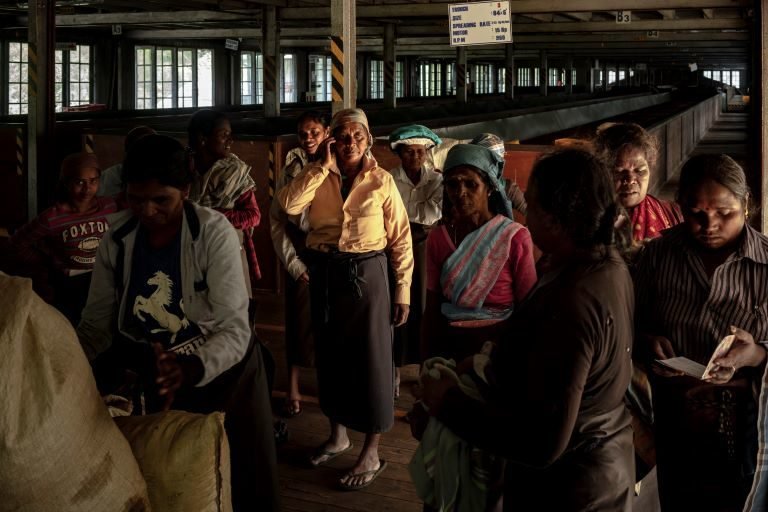
‘No clear future’
Agronomists and economists had warned against such a drastic switch, predicting correctly that Sri Lanka would suffer extensive financial losses due to the imminent failure of the agricultural sector, in particular the island’s tea industry, world-renowned for producing some of the finest teas.
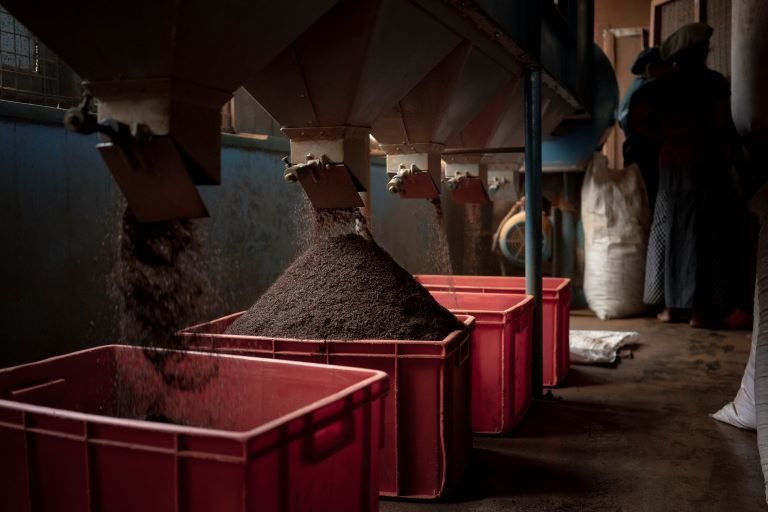
In the wake of the fertilizer ban, announced in April 2021, tea farmers saw their yields plummet by half, while entire plantations suffering heavy financial losses due to crop failure, contributing to farmers falling into poverty. Their repeated pleas to reinstate supplies of chemical fertilizer were ignored, even as the government temporarily provided incentives for them to go organic. But the island’s economy, already battered by the COVID-19 pandemic, took a sharp nosedive following this decision. What was not disclosed to the public was that this was the government’s way of not spending scarce foreign reserves at a time of economic strife.
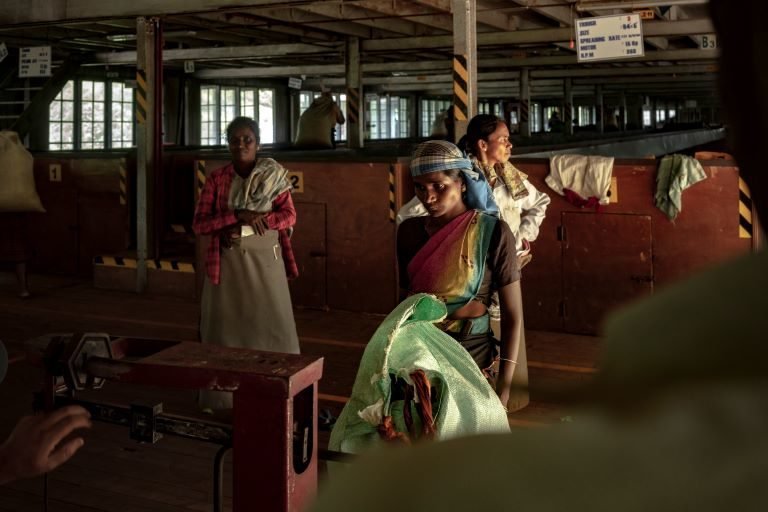
With fertilizer stocks fast running out, agricultural companies and farmers had to transition overnight. “An impossible transformation for many. Without being able to stock up on fertilizers, we were stretched to the limit,” says Akshan, a tea picker from Kandy, a hilly district in central Sri Lanka that’s the heartland of the island’s tea industry.
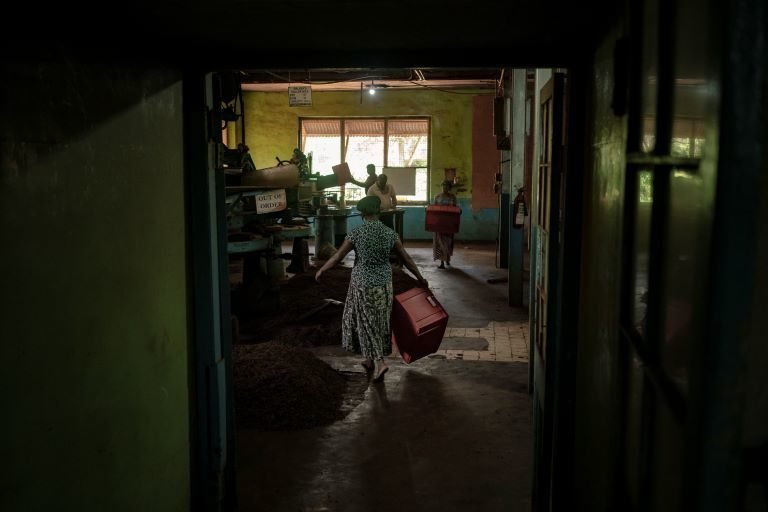
For the world’s fourth-largest exporter of tea, this reform was hard to swallow. Production declined by more than 20% in the first few months following the ban. Sri Lanka’s tea industry is crucial to the island’s economy, and among its main exports: tea accounted for $1.3 billion in annual export revenue until the economic crisis hit the island. A shift to organic farming precipitated by depleting foreign reserves today serves as the unfortunate reason for the failure to revive the island’s vital tea industry.
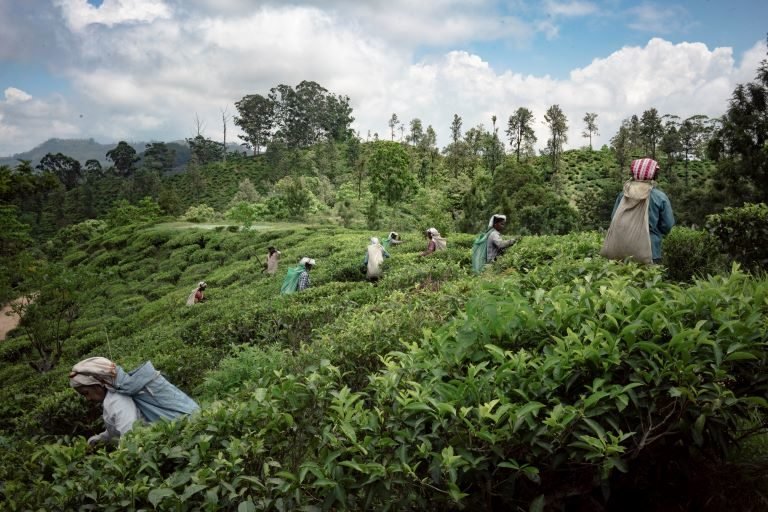
“We now have to wait longer for the tea bushes to grow in order to pluck leaves. The factory only works one day a week now,” says Suren, a supervisor at the Bluefield tea factory in Sri Lanka’s Central province. This century-old factory employs some 300 people, making it an important employer for the 175 families living in the area. Today, all of them have seen their incomes slashed drastically.
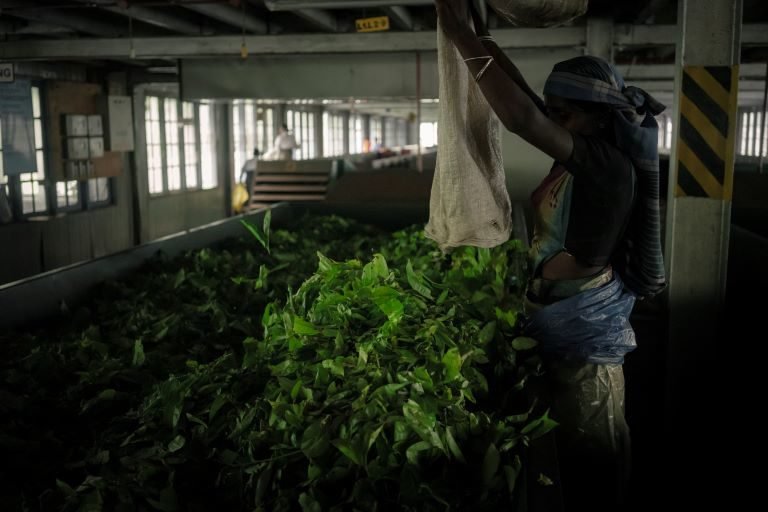
Next to the factory, the beauty and the fresh smell of tea serve as a contrast to the gloominess reflected in the faces of factory workers. “Many have left already. Without chemical fertilizer, lack of fuel for transportation, and no clear future, some have preferred to try their luck in urban centers,” Suren says.
For others, leaving isn’t an option. Her eyes wandering over the plantation, Anukshi, a tea picker at the Bluefield factory, says she feels desperate. “With what can I leave and where to? I have been working here for over 20 years, the only thing I can do is to wait for production to get back to normal.”
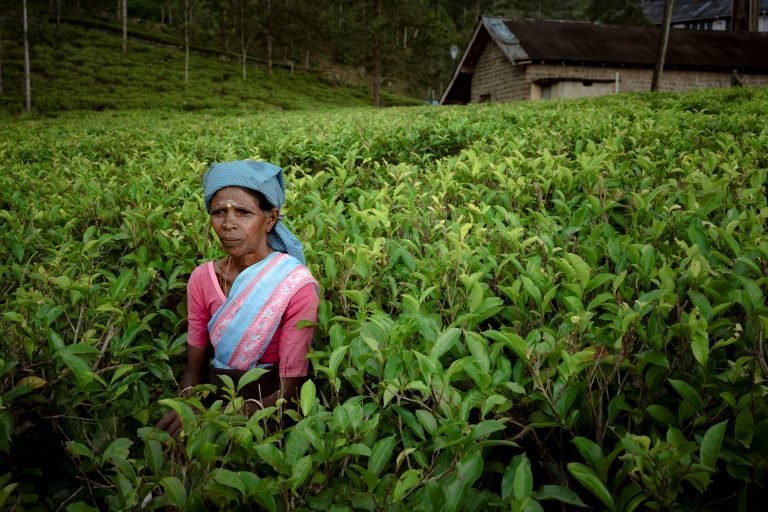
An ill-advised transition
The promise of a toxin-free nation has collapsed, and the farmers of Sri Lanka have lost faith in the government to provide them with a viable solution to revive cultivation. Farmers were among the first groups to coalesce around the anti-government protests that later grew into nationwide protests, drawing support from a broad swath of society.
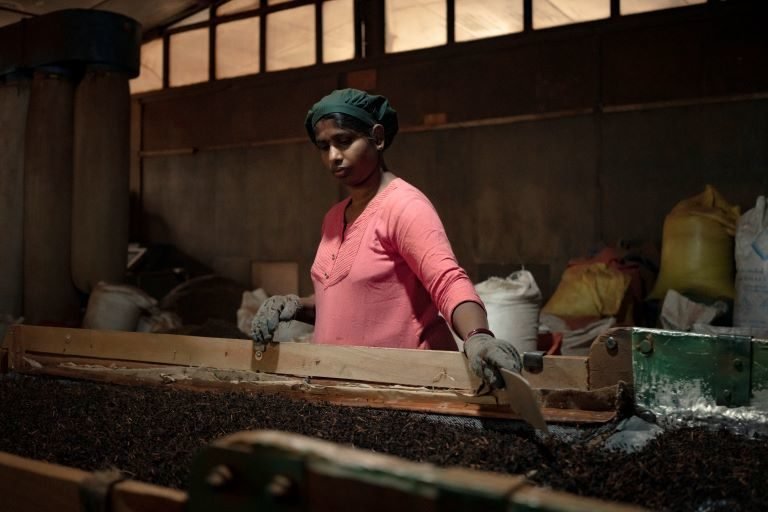
In 2021, when the beleaguered government reversed the ban on chemical fertilizers for key sectors such as tea and rice, it was too late. By then, fertilizer prices had risen by more than 25%, increasing the hardships faced by tea pickers, around 70% of the industry’s workforce. All told, the organic transition had cost the tea sector more than $425 million in losses.
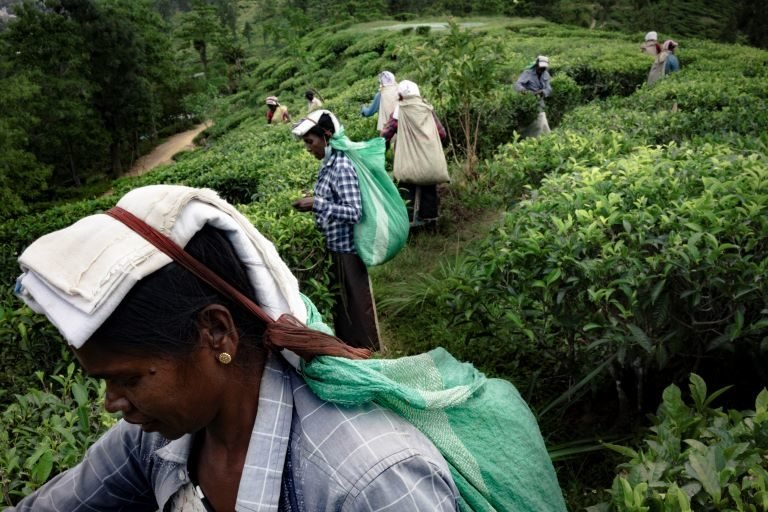
There was another reason the Viyath Maga thought it would be easy to sell organic farming to the Sri Lankan farming community, and to the population at large. Increasing rates of chronic kidney disease, or CKD, in rice-cultivating areas and among rice farmers have been a national concern for several years now. Those in the Viyath Maga, among others, attributed this to the extensive use of chemical fertilizers in rice cultivation.
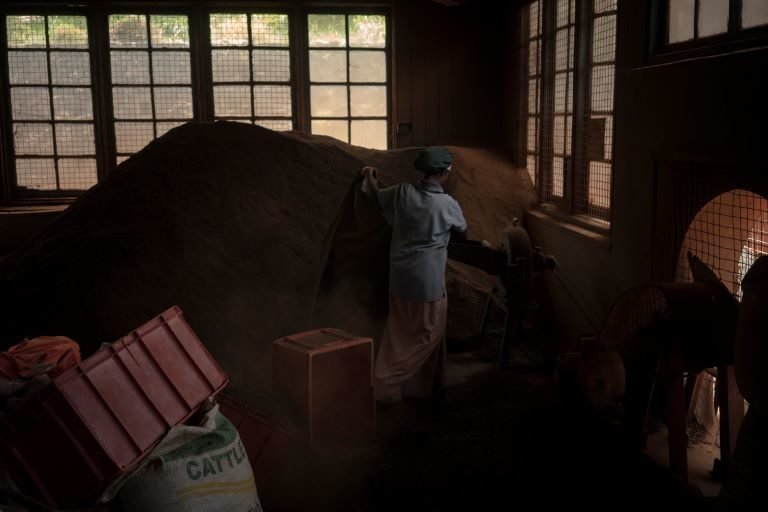
The province of North Central was a case in point cited by many. It had the highest number of CKD cases, and was also one of Sri Lanka’s top rice-producing regions. In a study published in 2019, Sri Lankan academic Pushpa Malkanthi looked into farmers’ perceptions: “Farmers wish to gradually move away from synthetic herbicides and tend to use cultural practices because they have a good knowledge on impacts of glyphosate, linked to the epidemic situation of Chronic Kidney Disease in Rajarata area.”

A similar policy was being adopted in Sikkim in northeastern India. There, the farmers had to adapt to using organic fertilizers. This transition, however, was supported by training programs for the farmers that focused on organic farming, as well as school education programs to promote the concept.
In Sri Lanka, the story unfolded quite differently.
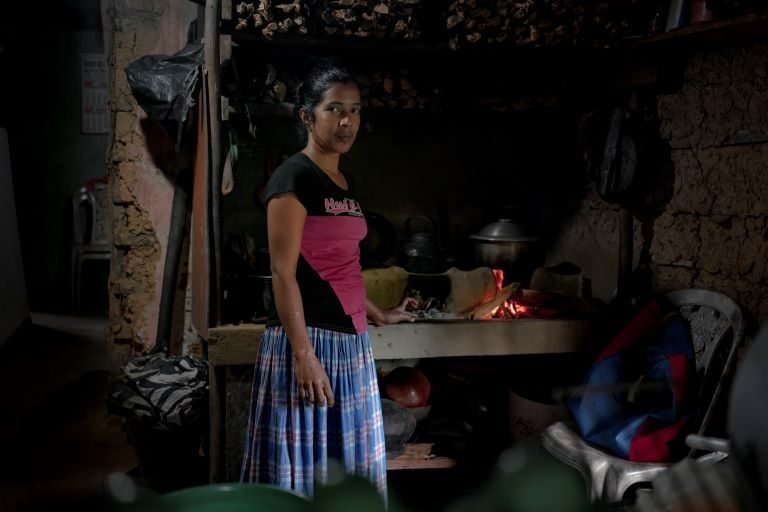
Dinusha scowls and says she’s against organic farming and the way in which it was introduced in Sri Lanka. “We cannot allow the tea industry to die,” she tells Mongabay. “It is a crime against Sri Lanka.”
She proudly pulls out several trophies that her son Rohan won at chess tournaments in Nawalapitiya, in Kandy district. Rohan is scheduled to leave Kandy imminently to study biotechnology at university. “This was a prosperous country but am not sure anymore,” Dinusha says in a tone of bitterness.
In the end, it wasn’t health or the environment that was at the heart of the controversial shift from chemical fertilizers to organic. But the outcome of this ill-advised decision is there for all to see.
Tea leaves from the Bluefield tea plantations are handpicked during weekdays. A lack of fertilizers means fewer trips into the fields for the workers, as the tea plants now take longer to grow. Image by Joanik Bellalou.












